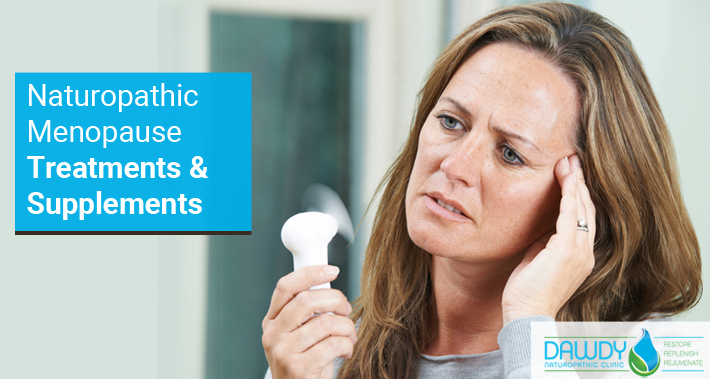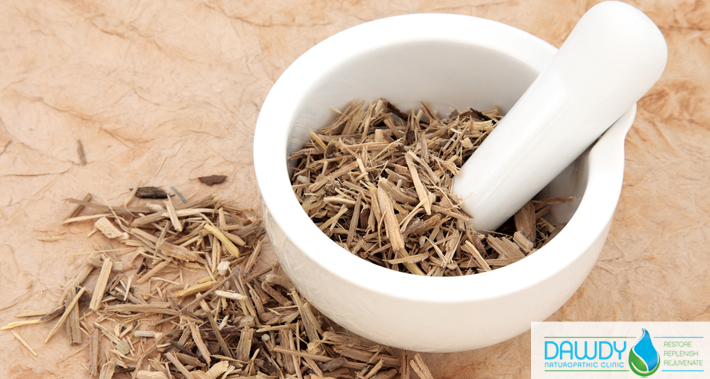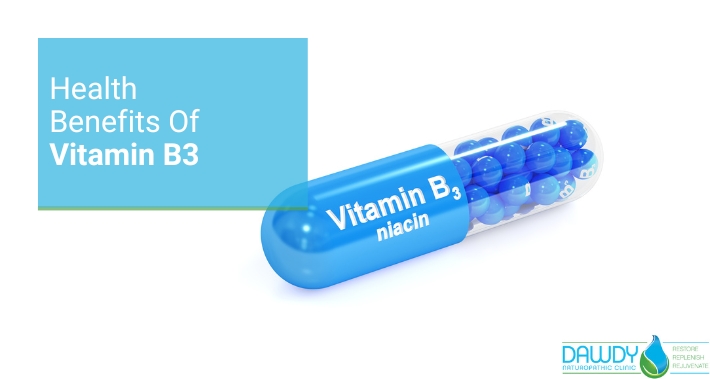Naturopathic Menopause Treatments & Supplements
Menopause ushers in a great change in your body that carries a new set of risks and symptoms.
And of course, there’s no “cure” for it, because it’s not a problem – it’s just a fact of life.
However, it can still be difficult to deal with.
Women’s health naturopathic doctors are a great resource to use if you are experiencing any symptoms associated with menopause and you are looking to reduce them naturally.
There are many solutions your Ottawa naturopathic doctor can use and tailor to your particular health goals.
Now, let’s find out more.
What Is Menopause
Menopause is diagnosed once a full year has passed since your last period.
In addition, your hormone levels will change and the estrogen in your body will diminish.
It is this aspect specifically that creates health challenges as you age, because your previous estrogen levels had many protective effects on your body.
Symptoms of menopause include hot flashes, night sweats, mood swings, irritability, and tiredness.
Plus, a slowing metabolism can also increase your risk for heart disease, stroke, and high blood pressure.
How Can Naturopathic Menopause Treatments Help?
Naturopathic menopause treatments can help to reduce the symptoms you’re experiencing.
You should explore what treatments will work best for your body with your naturopathic doctor.
Now, let’s find out more.
1. Manage Physical Symptoms
There are a number of physical symptoms that develop as a result of menopause.
Thankfully, there are a number of ways to remedy these symptoms naturally.
For example, medicinal plants that contain phytoestrogens such as ginseng, red clover, and soy can help to reduce hot flashes, and vaginal dryness.
Non-phytoestrogen plants like kava and black cohosh also help to reduce hot flashes.
Plus, it’s been shown that maintaining a healthy weight may help to reduce menopause symptoms generally and to prevent disease.
This is because certain sugary, processed foods can trigger hot flashes, night sweats, and mood swings in some people.
It’s also recommended to avoid caffeine, alcohol, and sugary or spicy foods right before you go to sleep.
2. Manage Emotional Symptoms
Some emotional symptoms of menopause include depression, anxiety, and mood swings.
The phytoestrogen plants ginseng, red clover, and soy also improve mood in addition to their benefits listed above.
It’s also worth pointing out that you should reduce your intake of processed foods and refined carbs because they can increase your risk of depression during menopause.
Regular exercise can help to alleviate anxiety, low mood, and poor sleep.
It’s also recommended to incorporate mind-body medicine like stress reduction, meditation, and yoga to manage your emotional symptoms.
3. Increase Your Energy Levels
Regular exercise can also help to increase your energy levels by alleviating fatigue.
Supplement your exercise regime with the regular intake of protein to help prevent muscle loss, weight gain, and to regulate your mood.
Finally, the phytoestrogen plants ginseng, red clover, and soy also help to increase energy.
How Can Naturopathic Postmenopause Treatments Help?
A holistic naturopathic treatment plan will consider how to alter your overall lifestyle in order to reduce the symptoms you’re experiencing during menopause, while also giving sound nutritional advice.
We’ll focus on the three biggest risks factors associated with menopause and work to reduce your potential of increased risk.
Keep reading to find out more.
1. Manage Your Risk Of Osteoporosis
Your naturopathic doctor will focus on reducing your risk of developing osteoporosis.
Osteoporosis is a disease where your bones become thin and weak, which leads to easy fractures.
It is the reduction of estrogen in your body during menopause that increases your risk of bone loss.
This starts as early as the year before your final menstrual period.
So, it’s strongly recommended to focus on your bone health as your periods become unpredictable.
The good news is that studies have shown that while menopause carries a higher risk of osteoporosis, calcium and vitamin D benefit in maintaining bone health.
You can get vitamin D in fortified food or from Sun exposure.
Here in Canada, though, vitamin D isn’t very well absorbed from the Sun for most of the year, so it’s a good idea to consider supplements.
You can get calcium from a number of different dietary sources that your naturopathic doctor will include in your dietary plan.
Weight bearing training is also a huge help to maintain your bone health.
This can be as simple as incorporating a brisk walk or job into your daily routine.
If you do develop osteoporosis, however, there are naturopathic treatments for osteoporosis that can help.
2. Maintain Your Heart Health
Another risk that grows during menopause is that of heart disease.
Studies show that your risk factor for heart disease increases after menopause.
This happens because the estrogen in your body helps to keep blood vessels flexible so that they can contract and expand to accommodate blood flow.
With the reduction of estrogen in your body, this benefit is lost and compounded with the potential rise in blood pressure that can thicken your artery walls.
Your heart is vulnerable with these conditions.
But, you can reduce your risk of heart disease by working with your naturopathic doctor to follow a heart-healthy lifestyle.
After all, the best naturopathic solution for heart disease is, of course, to prevent it from happening in the first place.
This includes eating a vegetable rich diet low in red meat and sugar.
Regular exercise is also recommended and you should quit smoking if you currently smoke.
Your naturopathic doctor will create a plan for each facet of this heart-healthy lifestyle to keep you on track to realize your health goals.
3. Manage Your Risk Of Diabetes
Finally, studies have shown that menopause increases your risk of diabetes.
You’re at a higher risk of developing diabetes the younger your menopause begins.
The culprit of this risk is again, your loss of estrogen.
This loss of estrogen shifts fat from your hips to your midsection, which increases your risk of type 2 diabetes.
Now, there are a number of ways your naturopathic doctor can recommend to reduce your risk of developing diabetes.
One example is by helping to select a vitamin supplement to boost your levels of vitamin B3 and magnesium.
Low levels of both of these vitamins increase your risk and so it’s important to ensure you have sufficient levels of them.
Your naturopathic doctor can also create a dietary plan to reduce your risk which will include cutting down or eliminating simple carbohydrates.
You’ll want to avoid simple carbohydrates because they are quickly converted into sugar by your body, which then causes your blood sugar to spike.
Instead focus on a diet with lean protein and plenty of leafy green vegetables.
Book An Appointment At Dawdy Naturopathic Clinic
As you can see, there are a variety of naturopathic solutions for menopause.
You might have noticed that many of the solutions to reduce particular risks or symptoms overlap and that’s a good thing.
For example, simply by incorporating weight bearing exercise you will reduce your risk for osteoporosis, heart disease, and diabetes.
Plus, you may see a general reduction in the severity of your symptoms of menopause.
The best way is to work directly with a naturopathic doctor who can tailor a dietary plan to meet your health goals, including working to lower the risks and reduce the symptoms associated with menopause.
Book an appointment today with the Dawdy Naturopathic Clinic to get started.
Yours in Health,
Dr. Kimberly Dawdy, ND
Dawdy Naturopathic Clinic
6899 Sunset Blvd,
Greely, ON K4P 1C5
-https://g.page/dawdynaturopathicclinic
Dawdy Naturopathic Clinic offers a variety of naturopathic health solutions for individuals and families in Ottawa and the surrounding area.





